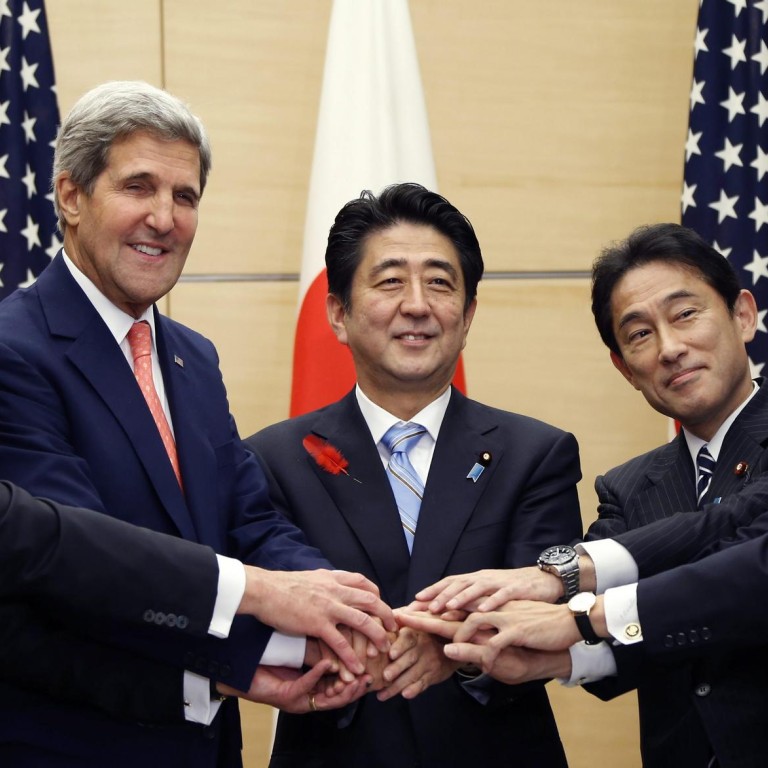
US and Japan boost military alliance with new missile defence system
Against the backdrop of regional tensions, the United States and Japan agreed yesterday to broaden their military alliance for the first time in 16 years, sending hi-tech drones to patrol disputed islands and adding a new missile defence radar system.
Against the backdrop of regional tensions, the United States and Japan agreed yesterday to broaden their military alliance for the first time in 16 years, sending hi-tech drones to patrol disputed islands and adding a new missile defence radar system.
The agreement, signed in Tokyo by US Secretary of State John Kerry and Defence Secretary Chuck Hagel and their Japanese counterparts, is a sign of Washington's increased military, economic and diplomatic focus on Asia. The deal is likely to alarm China, which has had increasingly testy relations with Tokyo.
The pact comes as the Japanese government is seeking to greatly enhance its military capabilities and to revise its pacifist constitution, paving the way for it to become a more equal partner with the US in times of conflict.
The two countries pledged in a 10-page statement to rewrite their guidelines for security cooperation, begin deployments of US Global Hawk reconnaissance drones to Japan and address challenges in cyberspace. And the P-8, a highly advanced manned reconnaissance aeroplane, will be deployed for the first time to Japan to help monitor the Diaoyu, or Senkaku, islands, which are also claimed by China.
The ministers agreed to locate a new X-band US missile-defence radar system at Kyogamisaki air base in Kyoto prefecture in western Japan and formalised a decision to relocate 5,000 US marines from Japan's southernmost island of Okinawa to the US Pacific territory of Guam. Tokyo agreed to contribute up to US$3.1 billion to help move the marines.
On North Korea's nuclear and ballistic missile programmes, Fumio Kishida, the Japanese minister dealing with North Korea, said: "Today we have seen a meeting of minds between Japan and the United States with respect to this situation.
"We are decidedly opposed to the attempt to change the status quo through coercion."

